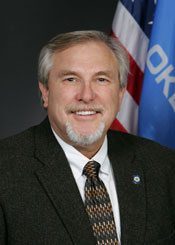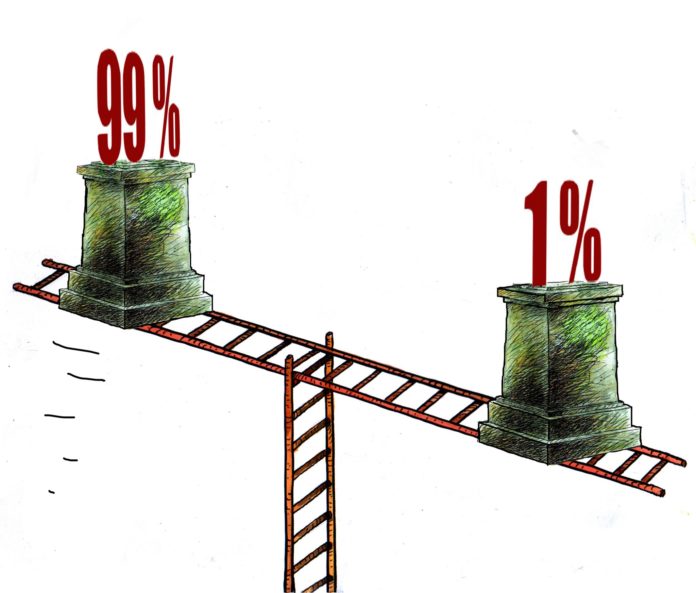BY DAVID PERRYMAN
 Rascal Flatts’ 2003 song Mayberry laments a society of constant toil and unmoderated pursuit of “more of everything” and is reminiscent of a slower time where houses had porches that were actually used to visit with friends and neighbors.
Rascal Flatts’ 2003 song Mayberry laments a society of constant toil and unmoderated pursuit of “more of everything” and is reminiscent of a slower time where houses had porches that were actually used to visit with friends and neighbors.
Mayberry means many things to many people. A good number of us were raised during a time when parents worked to “get ahead” and make things better for their children. Society’s structure and our shared values actually fostered upward social mobility and pursuit of the American Dream.
However, over the past 35 years, the bedrock American principle of equal opportunity has been under siege. An increasingly regressive economic system is imperiling the success of children of families who have nothing to sell except their labor.
As a result, in this second decade of the 21st Century, income inequality in Oklahoma is greater than at any time in the state’s 108-year history. The top 1% of Oklahomans has an average income that is 26 times greater than the average income of the other 99%.
During the 33 years between 1979 and 2012, the average income of the bottom 99% grew by only 8% while the average income of the top 1% grew by 143.2% [Economic Policy Institute].
This is not a new phenomenon. It is at least the third time in our nation’s history that our economic system has failed the poor and each failure threatened social order.
Initially, in America’s early years, it became apparent that our republic would not survive if the general population did not possess the educational skills to be effective citizens. Class divisions and disparity in wealth and influence threatened the fabric of this young nation. Horace Mann argued that universal, non-sectarian, free public education was essential to turn the nation’s unruly children into disciplined, judicious republican citizens. Mann’s vision instilled social efficiency, civic virtue and character.
In the waning years of the 19th Century, unchecked industrialism imposed income inequalities once again, stagnating upward social mobility and threatening social order. Through the collective courage of civic-minded Americans, universal and free high schools were established and the dream was restored.
Each time through history that our society has betrayed its focus on equality in economic opportunity, the injustice has been recognized in time for rectification. Time is running short.
Robert Putnam, author of Our Kids: The American Dream in Crisis, asks, “When did poor kids stop being ‘our’ kids?” Dr. Putnam’s research focuses on the web of formal and informal resources provided by parents of adequate means and the effect of those resources. He studies what happens when that support system is missing for children in poverty.
His conclusion is that income inequality, poverty, and a generation or more of lost dreams are intractably interwoven into a “connection gap” that isolates poor children and robs them of the ability to function at any productive level in our society.
Numbers just released by the National Low Income Housing Coalition show that a parent living in Oklahoma must work 76 hours per week at minimum wage, 52 weeks per year, to earn enough wages to afford to rent a two-bedroom apartment.
Even if they have the parenting skills to keep their children on track, they likely do not have the social network or the disposable time to put them “back on track” when they suffer the inevitable setbacks.
When did poor kids stop being “our kids?” When did they stop being “good enough” to receive guidance and support? When did it become acceptable to let children fall through the cracks?
Each time that our economic system has threatened social order by inhibiting the ability of working parents to provide opportunity to their children, our country has given focus to our children’s needs.
We all have our own version of Mayberry. Mine involves loving parents who frequently helped “adjust my direction” and never for a moment left me without a vision for the future.
It is time to be students of history. The price of social order is the same commitment from us.
– David Perryman, a Chickasha Democrat, serves District 56 in the Oklahoma House of Representatives








